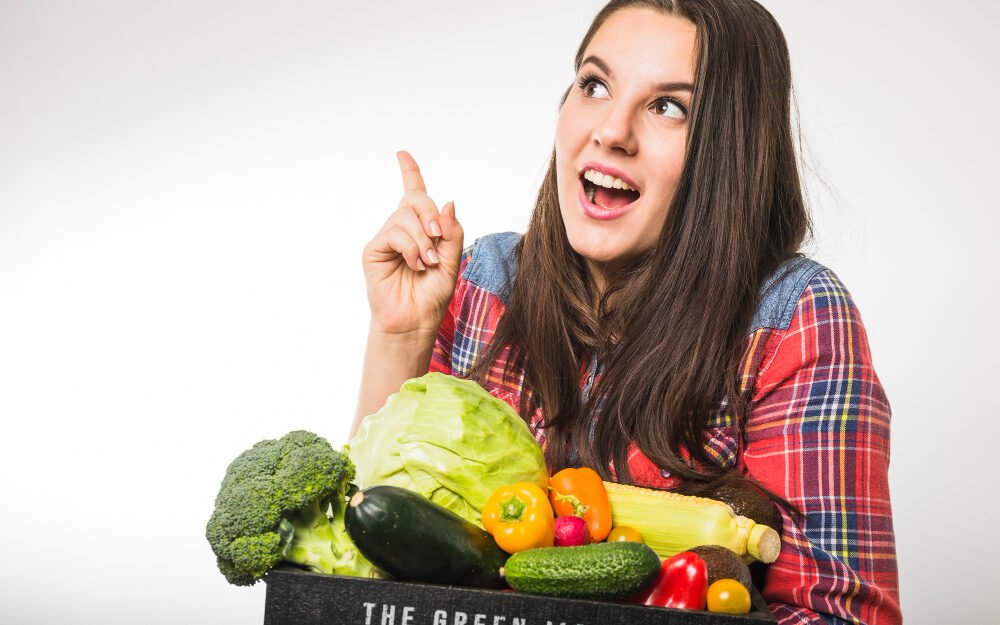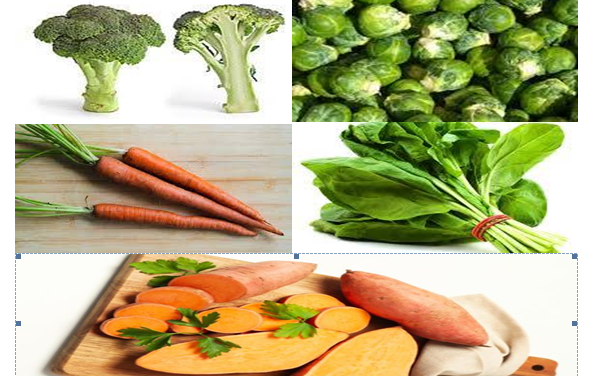Introduction
Benefits Of Vegetables To Help You Poop: In the pursuit of a healthy lifestyle, maintaining proper digestive function ranks high on the priority list. When it comes to regularity and smooth bowel movements, nature has bestowed us with an array of vegetables that serve as effective allies. Let’s explore the top vegetables that can aid in promoting optimal digestive health.

Image Credit Freepik
Understanding the Role of Vegetables in Digestion
Digestive health hinges on several factors, and dietary fiber is a key player in ensuring smooth bowel movements. Fiber adds bulk to stool, facilitates its movement through the digestive tract, and helps prevent constipation. Vegetables, particularly those rich in fiber, play a pivotal role in supporting digestive regularity and overall well-being.
The Power Players: Best Vegetables for Improved Digestion
1. Broccoli
As part of the cruciferous vegetable family, broccoli emerges as a powerhouse of nutrients. Notably rich in fiber, vitamins, and antioxidants, broccoli aids in maintaining regular bowel movements while offering an array of additional health benefits.
2. Spinach

Spinach, a versatile leafy green, packs a double punch with both soluble and insoluble fiber. This combination not only promotes regularity but also contributes to a healthy gut environment. Incorporating spinach into your diet can work wonders for digestive health.
3. Brussels Sprouts
Despite their divisive reputation, Brussels sprouts are high in fiber content, containing both soluble and insoluble fibers. This makes them an excellent choice for supporting digestion and ensuring regularity.
4. Sweet Potatoes
Not just a delicious addition to meals, sweet potatoes, especially when consumed with their skin on, offer a substantial amount of insoluble fiber. This fiber type aids in smooth bowel movements and contributes to a healthier gut.
5. Carrots
Known for their benefits for vision, carrots also serve as a fantastic source of fiber. Including carrots in your diet can aid in maintaining regular bowel movements and supporting overall digestive health.
Incorporating These Digestive Champions Into Your Diet

Image Credit Freepik
Adding these vegetables to your daily meals can be a straightforward and enjoyable process. Roasting broccoli or Brussels sprouts with a drizzle of olive oil, incorporating spinach into smoothies or salads, baking sweet potato fries, or enjoying carrots with hummus are just a few delectable ways to integrate these vegetables into your diet.
How to Choose and Prepare Digestive-Friendly Vegetables
When selecting vegetables for optimal digestion, consider choosing fresh produce over canned or processed options. Fresh vegetables retain their natural fiber content, providing maximum benefits for your digestive system.
Additionally, how you prepare these vegetables matters. Overcooking can diminish their fiber content, so aim for cooking methods like steaming, roasting, or lightly sautéing to preserve their nutritional value.
Conclusion
In the quest for digestive wellness, incorporating fiber-rich vegetables into your diet stands as a fundamental step. Broccoli, spinach, Brussels sprouts, sweet potatoes, and carrots offer an excellent arsenal of nutrients and fiber to support regular bowel movements and maintain a healthy gut.
Remember, while these vegetables excel in promoting regularity, a well-rounded diet comprising a variety of foods is crucial for overall health and well-being. Embrace these nature-given digestive aids and witness the transformative power they bring to your digestive system.
In summary, these vegetables aren’t just for your plate; they’re nature’s digestive heroes, ready to enhance your well-being from the inside out.
FAQs (Benefits Of Vegetables To Help You Poop)
Q: Why are vegetables important for digestive health?
A: Vegetables, especially those rich in fiber, play a crucial role in digestive health. They contain dietary fiber that adds bulk to stool, aids in its movement through the digestive tract, and helps prevent constipation. Additionally, vegetables are packed with essential nutrients and antioxidants that support overall well-being.
Q: How do these specific vegetables help in improving bowel movements?
A: Vegetables like broccoli, spinach, Brussels sprouts, sweet potatoes, and carrots are high in fiber, both soluble and insoluble. Soluble fiber absorbs water and forms a gel-like substance, softening stool, while insoluble fiber adds bulk and helps it move more easily through the intestines. This combination promotes regular bowel movements.
Q: How much of these vegetables should I consume to improve my digestion?
A: The recommended daily intake of vegetables varies, but aiming for a diverse range of vegetables in your diet is beneficial. Incorporating a serving of these fiber-rich vegetables in each meal or having a variety of them throughout the day can contribute significantly to better digestive health.
Q: Are there other benefits to eating these vegetables besides aiding digestion?
A: Yes, absolutely. These vegetables are not only beneficial for digestive health but also offer a range of other health benefits. They contain vitamins, minerals, and antioxidants that support overall immunity, heart health, and may even reduce the risk of certain chronic diseases.
Q: Can I get the same benefits from supplements instead of consuming these vegetables?
A: While supplements may offer isolated nutrients, they typically lack the synergistic combination of nutrients and fiber found in whole vegetables. It’s generally recommended to obtain nutrients and fiber from whole foods as part of a balanced diet for optimal health benefits.
Q: Are there any specific cooking methods that retain the most nutrients and fiber in these vegetables?
A: Light cooking methods like steaming, roasting, or sautéing help retain the nutritional value of these vegetables, including their fiber content. Overcooking or boiling for extended periods may lead to a loss of some nutrients and fiber.
Q: Can these vegetables cause any adverse effects if consumed in large quantities?
A: While these vegetables are generally safe and nutritious, consuming excessively large amounts might lead to digestive discomfort for some individuals. It’s advisable to incorporate them gradually into your diet and maintain a balanced intake.
Q: Are there any vegetables that should be avoided for digestive issues?
A: For some individuals, certain vegetables like beans or cruciferous vegetables (like broccoli or Brussels sprouts) may cause digestive discomfort due to their high fiber content or gas-producing properties. It’s recommended to observe how your body reacts to different vegetables and adjust your intake accordingly.
We thank you for visiting our post “Benefits Of Vegetables To Help You Poop”
Read More
Are Sweet Potatoes Suitable For Diabetic People: A Detailed Report By Dietitians 2023
The Advantage Of Vegetable And A Plant Based Meals 2023
Click Here for similar articles!